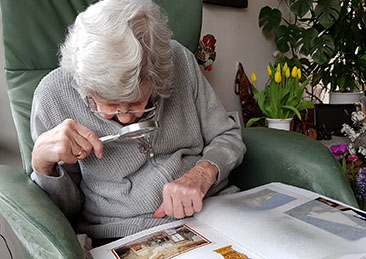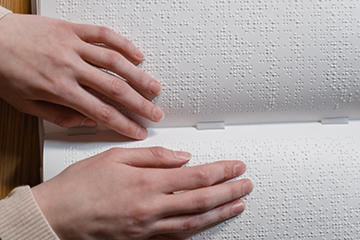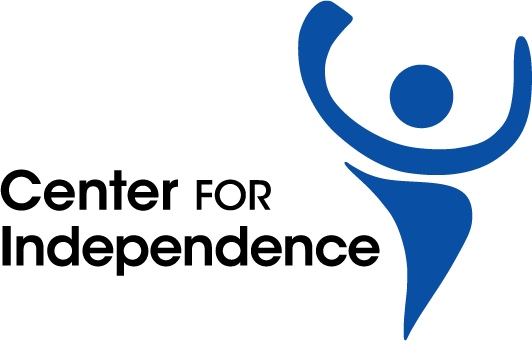Low Vision and Blind Services
Center for Independence Low Vision Program
Providing opportunities for low vision education, information, self-help, support & building connections
among people in our community who have experienced sight loss.
Low vision can significantly decrease a person’s functional ability and independence. Low vision services may help individuals overcome fears, regain life skills, re-establish community contacts and regenerate self-esteem. At CFI, our Low Vision Program can provide a variety of services which can assist a person in regaining and maintaining their ability to function independently. We work to assist persons experiencing a loss of vision in their efforts to make necessary adjustments to cope with losing sight.
CFI offers support groups, assistive devices and skills training for those with low vision and blindness. The on-site low vision lab in Grand Junction is available to consumers for demonstration and training on assistive devices. Our experienced professionals can help you to remain active, live independently and cope with vision loss.
Contact us directly to schedule an appointment and discuss what services are available in your area
or inquire about support group times and locations.
Call: 1-800-613-2271
Western Slope Visionaries: Low Vision Peer Support Groups
facilitated by Center for Independence
The goal of the Peer Support program is to enhance the quality of life for persons affected by vision loss, through empowering peer support, education, information and interaction. We strive to encourage peer to peer emotional support for adults who are experiencing vision decline or loss of sight.
Coping with low vision isn’t just a matter of mastering physical and practical challenges. For individuals experiencing vision loss, the first hurdle is often an emotional one. The support group experiences can be helpful in moving members towards acceptance and adjustment to their new normal with a visual impairment. Group members not only share advice and strategies on living with vision loss, but they also socialize and frequently create lasting friendships.
Members of Western Slow Visionaries who have lost or who are losing their vision appreciate the empathy and practical advice they recieve from others who have shared similar experiences. Our groups meet regularly to share experiences, insights, laughter and the special camaraderie of those who deal with vision loss.
For more information, contact Joanne Stamp (Low Vision Program Manager) via email at [email protected] OR by phone at 970-644-7236

Low Vision Services
- Volunteer Readers
- Daily Living & Independent Skills training
- Sighted Guide
- Vocational Skills training – computers, keyboarding, resume writing, and job preparation
- Peer Counseling, Support Groups*, Recreation*
- Advocacy for the Vision Impaired and Blind
- Information on the Americans with Disabilities Act (ADA)
- In-Service Training & Presentations (provided to other service providers)
- Exemption Directory Assistance charger
- TAP – Telephone Assistance Program

